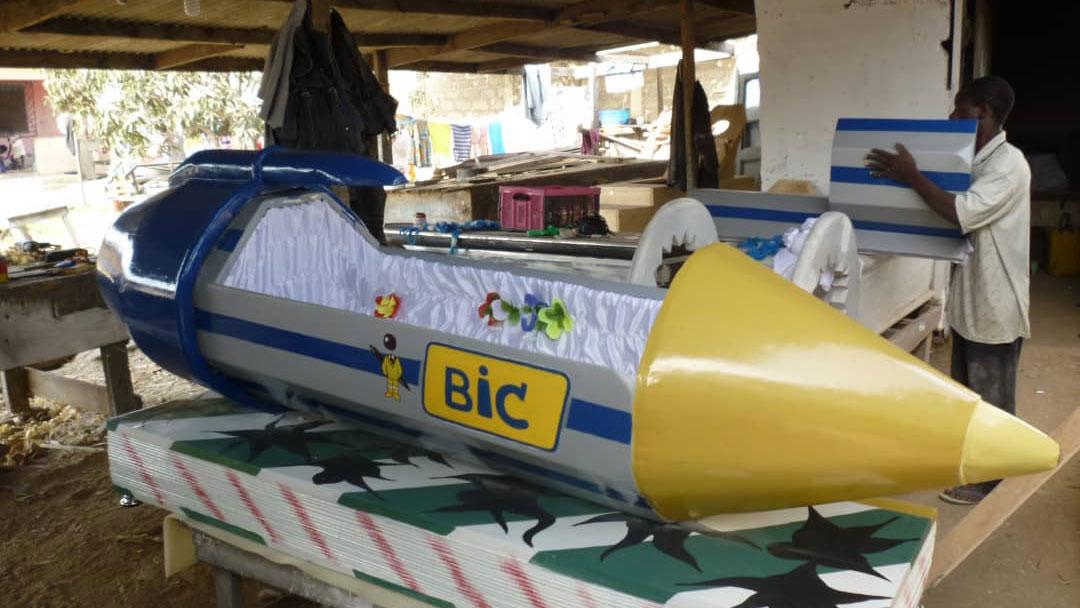The smell of fresh fish and smoky firewood fills the air in Teshie, a fishing community within Ghana’s capital, Accra. Here, the streets buzz with the sounds of hammering and sanding as a group of eight sweaty men make coffins at a carpentry shop.
But they’re not just any ordinary coffins — these designs take the shapes of cars, airplanes, fish and cockerel, among other fantasy images.
Making coffins is a grim job, but one could argue that someone has to do it. And in Ghana, coffin makers have elevated death into an art form — building fantasy coffins despite the occassional raised eyebrows at this uncommon profession.
Related: What is aquamation, the burial practice Desmond Tutu chose instead of cremation?
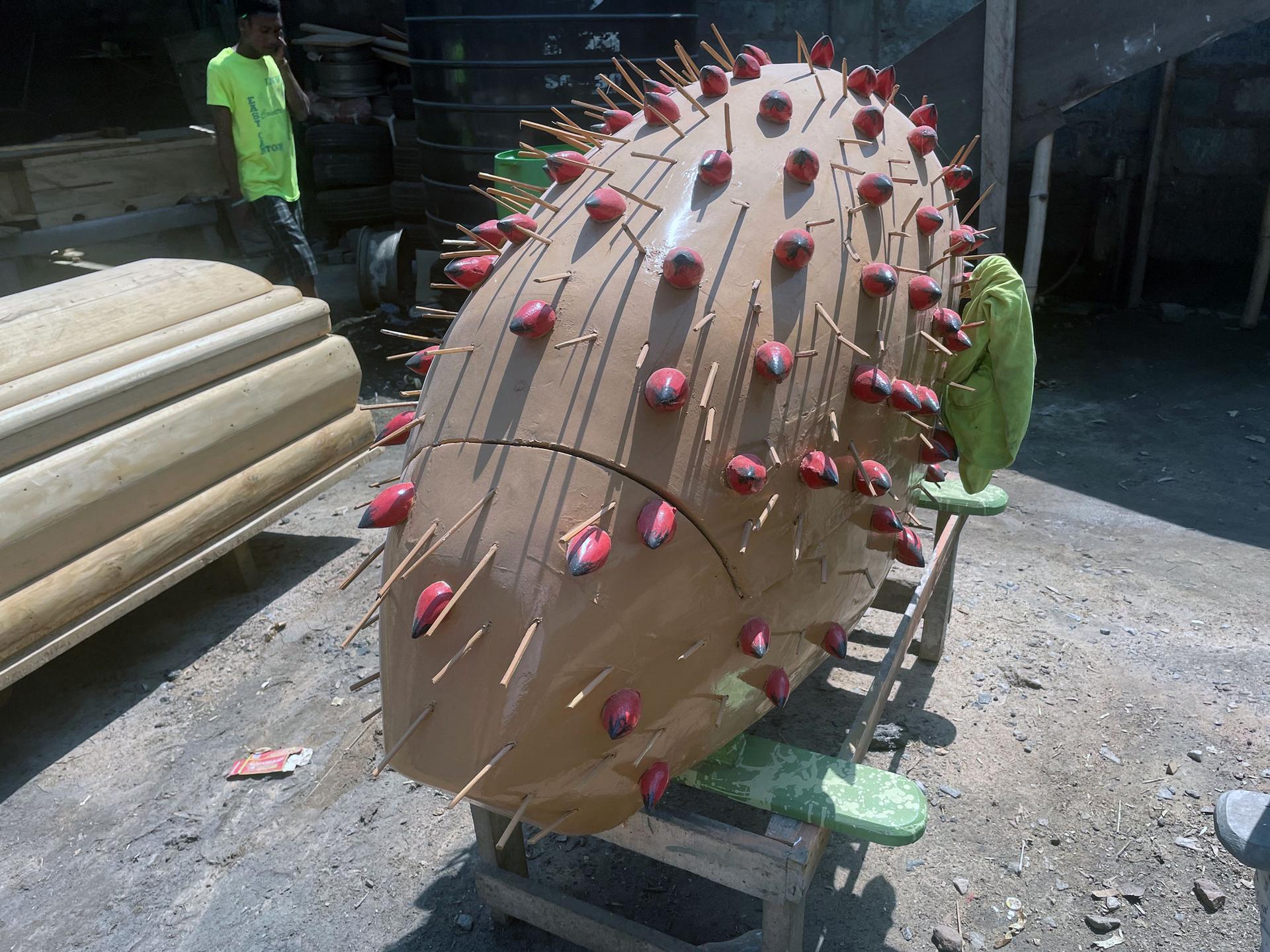
Carpenter Lawrence Anang, 22, said he views his job as both an honor and part of his family legacy. Anang learned the trade from his father, who learned it from his family’s 60-year fantasy coffin-making business.
“We, the coffin makers, have emotions, too, like any other person. … But our work is really important, so we have to do [it]. … The human being will definitely die, and when you die, you will be buried.”
“We, the coffin makers, have emotions, too, like any other person. We do cry sometimes when someone passes away. But our work is really important, so we have to do [it],” Anang said.
Many Ghanian business owners pray daily for more clients, but Lawrence said coffin makers never pray for another’s death.
“The human being will definitely die, and when you die, you will be buried,” he said.
The carpentry shop boasts an amazing array of painted wood sculptures, appearing more like an art studio than a place where coffins are made.
Related: Turkey’s ‘whirling dervishes’ strive to keep the practice sacred amid tourist demand
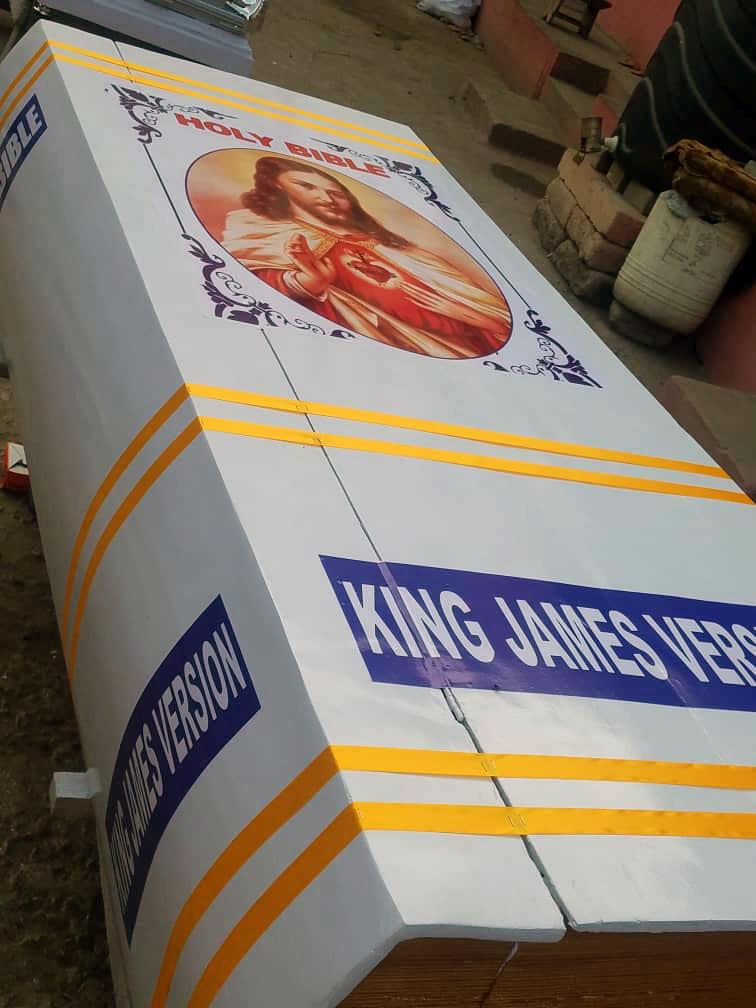
Despite their extravagant appearance, they are indeed functional coffins designed to manifest the fantasy of the dying person’s burial vision (or their loved ones who want to honor them).
The designs usually align with the status or profession of the deceased.
At the shop, Anang was working on a lion design commissioned by the relatives of a chief. They chose the lion because the cat is considered the ruler of the forest, a fitting match for a chief.
In Ghana, the fantasy coffin industry is not just about paying respect to the dead, but also a status symbol — a statement on the life or occupation of the departed.
An airplane coffin is constructed to honor a deceased pilot, a truck coffin is designed for a driver and a microphone-shaped coffin honors a dead musician or a broadcaster.
“We have something like a cocoa pod for a farmer, and then a Bible for a priest; then a pen or a book for a teacher,” Anang said.
So much goes into preparing a fantasy coffin that it can take up to two weeks to finish.
First, measurements have to be just right, to leave some space around the corpse — Anang ironically described this as “breathing room.”
It’s then carefully constructed and sandpapered for a smooth feel, avoiding any sharp splinters.
Next, the coffin makers paint or spray and finish the product — a coffin, ready for its occupant.
Related: China’s last remaining lantern craftspeople uphold a waning tradition
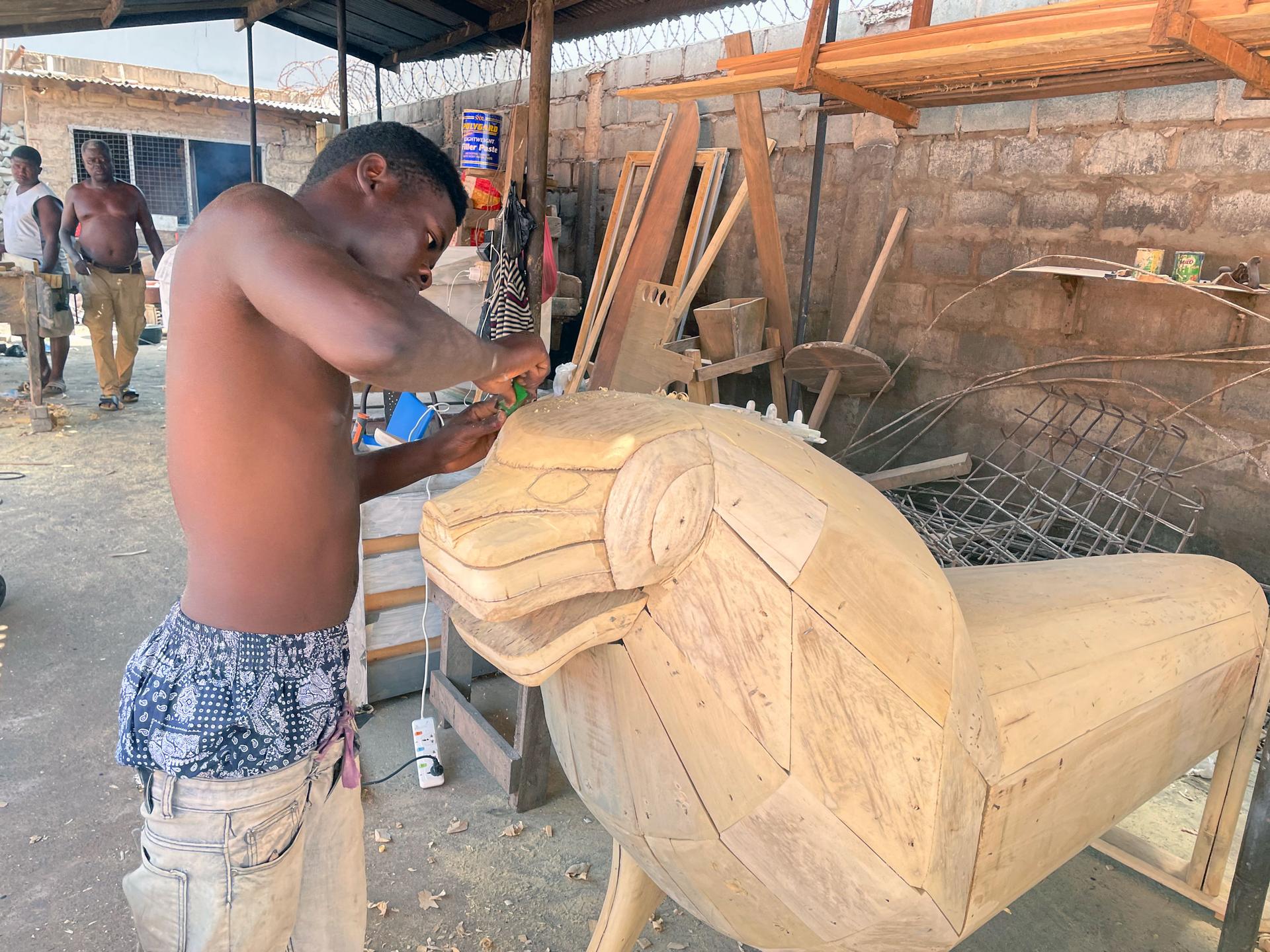
Felicia Okai has come to Anang’s Kane Kwei Carpentry Shop to place an order for a fantasy coffin for her dead relative.
“I really admire their works, and so I came here to get either the cocoa-pod-designed coffin or the palm-fruit designed coffin for a relative who was a farmer. It will make the funeral the talk of town.”
“I really admire their works, and so I came here to get either the cocoa-pod-designed coffin or the palm-fruit designed coffin for a relative who was a farmer. It will make the funeral the talk of town,” she said.
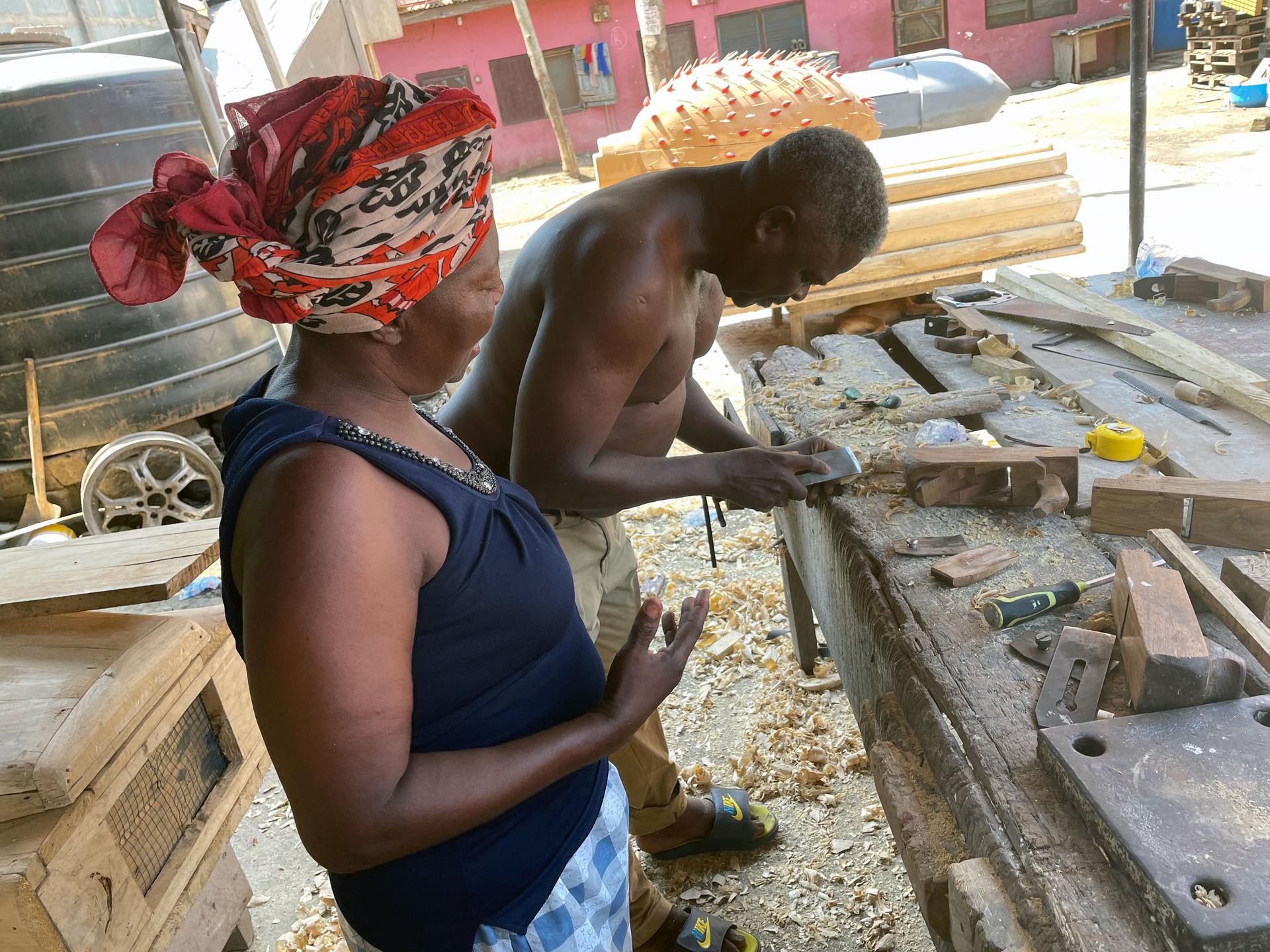
The decorative coffins not only appear at funerals in Ghana, but for over five decades, they have become one of Ghana’s most unique cultural export.
“Our fantasy coffins also go mostly to the USA, but we have a museum in Europe, too. Then I have [an older] brother in Wisconsin also working on this,” Anang said.
The coffin makers use soft wood and mahogany that can cost up to $1,000. Anang’s shop produces up to 20 coffins each month.
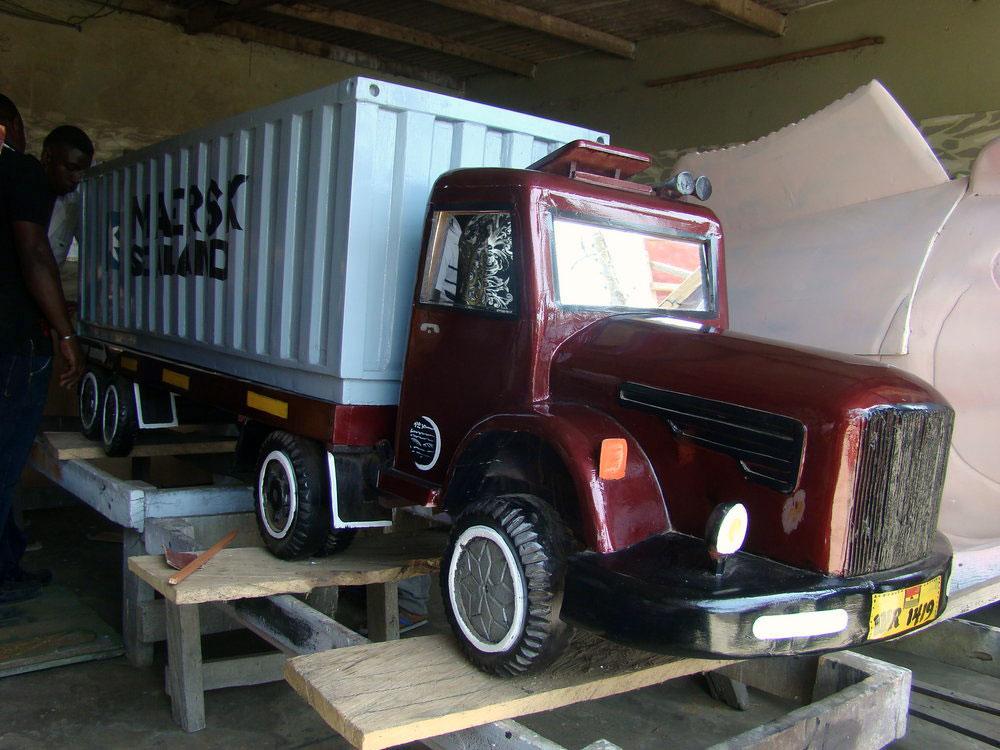
Funerals are not just rites of passage in Ghana; they are also considered part of the culture, and even a celebration of the life of the dead.
Often, funeral grounds are akin to a typical birthday party in Accra, with people dancing, wining and dining.
The latest trend is for “dancing” pallbearers dressed in flamboyant outfits to appear at funerals, who fancifully wobble to music as they carry coffins on their shoulders.
Death is part of life, Anang said. He would like to be buried in a fantasy coffin shaped in the form of a hammer when his time comes.
“If you want to have fun in the land of the dead, then you need to get your coffins here.”
“If you want to have fun in the land of the dead, then you need to get your coffins here,” Annang said.
